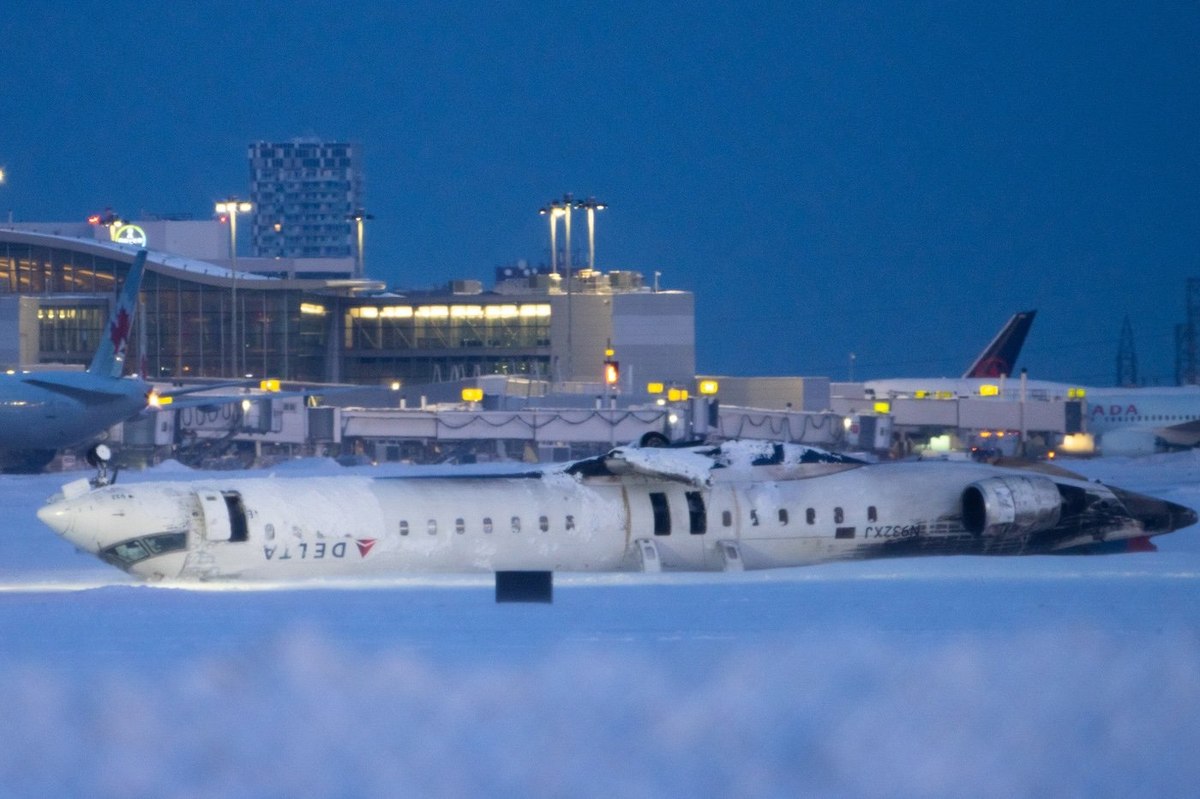
Turbulence ahead? How likely are travelers to fly Delta again after the air disaster?
- 51% of Americans are afraid or “slightly bothered” by flying in an airplane.
- Buzz about Delta has dropped below the industry average following Toronto accident.
- Social media users hypothesize connection between DEI policies and plane crash.
- Purchase Consideration and Intent are largely unaffected by the bad press.
It’s been an ‘exciting’ year for air travel, with several high-profile incidents that may be casting a shadow over the sense of safety in the skies. Most recently, a Delta flight crash-landed at Toronto’s Pearson airport, flipping upside down and erupting in a ball of flame. All the passengers escaped the accident safely, but what about Delta’s brand? What about the reputation of air travel in general?
Americans feels less safe about flying following accidents
In early January, a survey conducted by YouGov and the Economist asked Americans how they feel about flying in airplanes. At that time, 13% said they are afraid of it, while 31% said it bothers them slightly.
When we asked again on January 30th, after the Air America disaster, these figures inched up to 15% afraid and 31% “slightly bothered.” Finally, on January 19th, after the Delta crash at Toronto Pearson airport, the figures had again crept up to 17% afraid and 34% bothered, for a majority (51%) of Americans who are not at ease flying.
YouGov also asked Americans, apart from their own feelings about flying, how they would rate the overall safety record of commercial airline travel. On January 30th, before the Delta crash, 77% answered either ‘excellent’ or ‘good.’ On February 19, that dropped to 71%. These results suggest that high-profile accidents may be having a negative effect on consumer perceptions about air safety.
Pearson crash and Crowdstrike: two Buzzkills for Delta
If confidence in air safety in general has ticked downward since the last crash, how is Delta faring? Buzz is a YouGov BrandIndex net metric that indicates whether consumers are hearing more positive or negative things about a brand. Delta’s Buzz has taken two major hits in the past year. The first follows the Crowdstrike outage last July, which affected Delta much more seriously than other airlines.
Following the February 17 Toronto crash, Delta’s Buzz scores are again plunging below the sector average. There was also a small drop right before the Toronto accident which may be related to a February 5 collision in Seattle with a Japan Airlines plane.
Delta disaster’s DEI-twist
While BrandIndex can tell us that people are hearing bad things about Delta, YouGov Behavioural: Online Search and Social can give more specific insights into the online conversation about the brand. Buzz on social media shot up around the time of the incident(s). We see a smaller spike around the time of the Japan Airlines collision, then a huge one for the Pearson crash.
Analysis of online conversation shows that many users are connecting the Delta crash with DEI hiring policies. One Instagram user describes Delta as “An airline that respects diversity more than life👏🔥,” and an X account says “Please STOP 🛑 the DEI we don’t want to DIE!!!” While social media commentary is not representative of public opinion generally, it sometimes provides insight on some consumers’ beliefs.
How is the buzz affecting bottom line?
While the conversation about Delta has been unusually negative, conversation is not conversion. Despite bad Buzz, Delta’s more bottom-line metrics have not dropped appreciably since the February 17 accident.
On the day of the crash, 33.2% of American consumers would consider Delta, and 12.5% were most likely to purchase their next ticket from the airline. On March 6, those figures had only moved slightly to 32.5% and 13.0% respectively. This suggests that news of the crash had little short-term effect on ticket sales, whatever online commenters have to say.
Methodology: For the questions on feelings about flying and air safety, YouGov polled 1704 US citizens on January 5, 3394 on January 30 and 3881 on February 19, 2025. Data is weighted by age, gender, race, political affiliation, education level and region. The margin of error is +/-2.8% for the overall sample.
YouGov BrandIndex collects data on thousands of brands every day. Data is from surveys of adults aged 18 years and above residing in the US from March 7, 2024 and March 6, 2025. Scores are based on an eight-week moving average. Learn more about BrandIndex.
YouGov Behavioral: Online Search & Social delivers powerful social insights. For consumer reactions, sector insights, brand affinities and everything else you need from 46+ digital sources in over 40 markets.